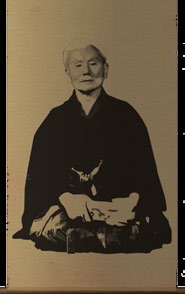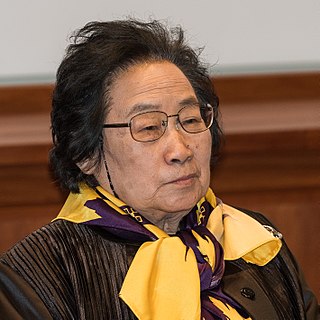A Quote by Ben Aaronovitch
What frustrated me was the thought that with three thousand years of history someone in China, some monk in a monastery halfway up a mountain, must have developed a magic kata, a physical expression of formae. Or at least have got close enough to explain all those legendary swordsmen and their inexplicable desire to roost on the tops of bamboo trees.
Related Quotes
To become a chess grandmaster also seems to take about ten years. (Only the legendary Bobby Fisher got to that elite level in less than that amount of time: it took him nine years.) And what's ten years? Well, it's roughly how long it takes to put in ten thousand hours of hard practice. Ten thousand hours is the magic number of greatness.
It took more than three thousand years to make some of the trees in these western woods ... Through all the wonderful, eventful centuries since Christ's time-and long before that-God has cared for these trees, saved them from drought, disease, avalanches, and a thousand straining, leveling tempests and floods; but he cannot save them from fools.
We must teach our people the greatness of China's historical culture. In our educational program we must stress Chinese history and geography so that all may know and appreciate China's civilization of five thousand years and the far-flung boundaries of our ancient race. This will engender a greater faith in our own future.
On the river path in Boston beauty was most expressed as youth and intelligence. That made sense; sixty degree-giving institutions, some three hundred thousand students; that meant at least one hundred fifty thousand more nubile young women than demographics would ordinarily suggest. Maybe that was why young men stayed in Boston when their college years were over, maybe that explained why they were so intellectually hyperactive, so frustrated, so alcoholic, such terrible drivers.
I managed 26 years and found out when I retired I didn't own the game. I thought I owned it when I was managing all those years. You can climb to the top of the mountain, get down on your knees and kiss the ground, because you'll never own that mountain. That mountain is only owned by one single person, and he'll never give it up. That's the way baseball is.
We normally think of history as one catastrophe after another, war followed by war, outrage by outrage - almost as if history were nothing more than all the narratives of human pain, assembled in sequence. And surely this is, often enough, an adequate description. But history is also the narratives of grace, the recountings of those blessed and inexplicable moments when someone did something for someone else, saved a life, bestowed a gift, gave something beyond what was required by circumstance.
I always did drawings. Then, few years ago, I started working with large-scale paper. It's an extension of performance, because the pieces are the size of my full body. I use pencils, acrylic, watercolors, and I also incorporate textual messages. I did most of them in a monastery in Spain at the top of a mountain. I lived there a bit like a monk. I meditate quite often. At night, which is when I like to work, I like to think I have conversations with Francisco Goya. He died so many years ago, of course, but somehow, his ghost is always with me.



































